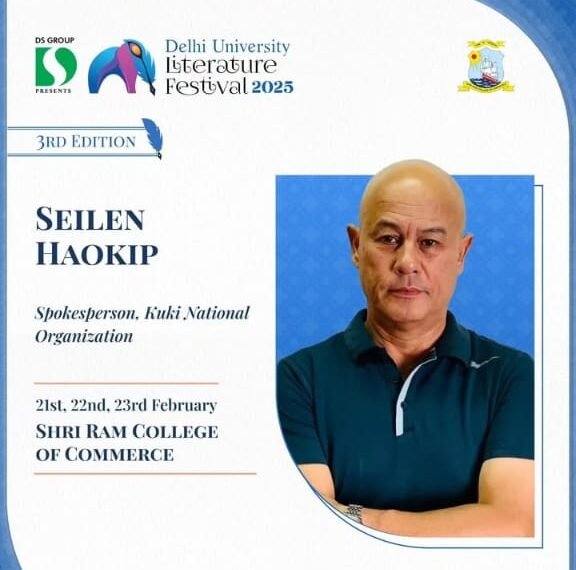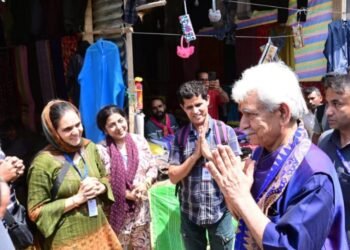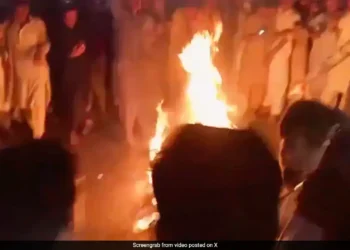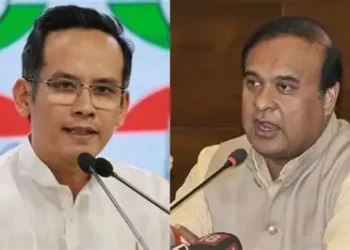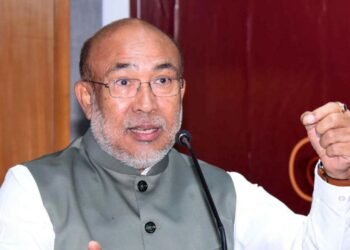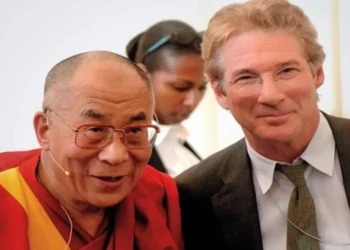The claim that KNO spokesperson Seilen Haokip was “hijacking” a panel discussion before it even started has sparked debate over censorship, social media influence, and the unchecked power of panel moderators.
BY PC Bureau
The controversy surrounding The Great Game East: Northeast Cauldron pane at the Delhi Literature Festival has raised serious questions about free speech, inclusivity, and the influence of social media outrage on public discourse. One of the most puzzling aspects of this incident is moderator Shiv Kumar Verma’s claim that Kuki National Organisation (KNO) spokesperson Seilen Haokip was attempting to “hijack” the conversation—even before it began.
Haokip was officially invited to the panel discussion, with his travel expenses covered by the festival organizers. However, just minutes before the event was set to begin, he was abruptly informed that he would not be allowed to participate. The decision reportedly came from Verma, who justified Haokip’s exclusion by alleging that he was “trying to hijack the conversation.”
ALSO READ: “Sort it out,” was Swapan Dasgupta’s advice to the Delhi Lit Fest organizers over the Seilen Haokip row.
A slew of contradiction:
Kunal Verma gave two contradictory explanations for removing KNO spokesperson Seilen Haokip from the panel discussion.
According to Haokip, Verma told him, “The whole matter has been politicized. It has gone out of hand. We don’t want the Delhi Literary Festival to get a bad name.”
However, in a statement to The Hindu, Verma claimed, “I had to decide to remove him because he was trying to hijack the conversation.”
This contradiction raises a fundamental question: how could Haokip have hijacked a discussion that hadn’t even begun? He had not spoken a word before being removed, making it clear that the decision was based not on his participation but on preemptive assumptions and external pressures.
ALSO READ: N. Korea Confiscates Luxury Dog Fur-lined Coats to Clothe Under-Supplied Soldiers
The Role of Social Media Pressure
Verma later defended his decision by claiming that the discussion was meant to be broader than the Kuki-Meitei tensions and that social media users had framed the panel as biased in favor of the Meitei perspective. However, an examination of social media activity before Haokip’s removal suggests otherwise.
Rather than concerns about bias, social media was rife with posts attacking Haokip personally, labeling him an “insurgent” and calling for his exclusion from the panel. These efforts were largely led by the Meitei Heritage Society and other Meitei-affiliated online groups.
This is the murder of “Freedom of Speech” which is the fundamental right of its citizens in a democratic country like India. Why did they invite Dr Seilen Haokip if they could not give him time to speak? @swapan55
The cancellation of Haokip’s talk has sparked a broader… pic.twitter.com/EbmS6OlE7s
— Sumkawn (@Sumkawn) February 23, 2025
A Unilateral Decision Without Due Process
One of the most troubling aspects of this situation is that the decision to exclude Haokip appears to have been made unilaterally by Verma, without consulting key festival organizers such as Swapan Dasgupta or patron Sanjeev Sanyal. This raises an important procedural question:
- If an invited speaker’s participation can be revoked minutes before an event without consultation, what does this say about the credibility of literary and academic discussions?
- Can moderators now exercise unchecked power to remove panelists based on alleged external pressures rather than substantive concerns?
ALSO READ: Manipur Drone Bombing: Five Questions NIA Must Answer
The invitation card sent to Haokip bore the names of both Dasgupta and Sanyal, yet Verma alone decided to remove him. This has led to criticism of the festival’s handling of the matter, with many questioning whether this was truly about maintaining balance or bowing to political and social media pressures.
Haokip’s removal is not just about one panel discussion; it reflects broader concerns about who gets to participate in intellectual and academic discourse. If a formally invited speaker can be removed moments before an event due to social media pressure, it sets a dangerous precedent for the future.
The fundamental question remains: was Haokip’s removal an attempt to ensure neutrality, or was it an act of censorship? And if someone can be accused of hijacking a conversation that had not even begun, what does that say about the integrity of the discussion itself?
This incident serves as a reminder that the growing influence of online outrage, when left unchecked, can undermine open dialogue, academic freedom, and the core values of literary and intellectual forums.


